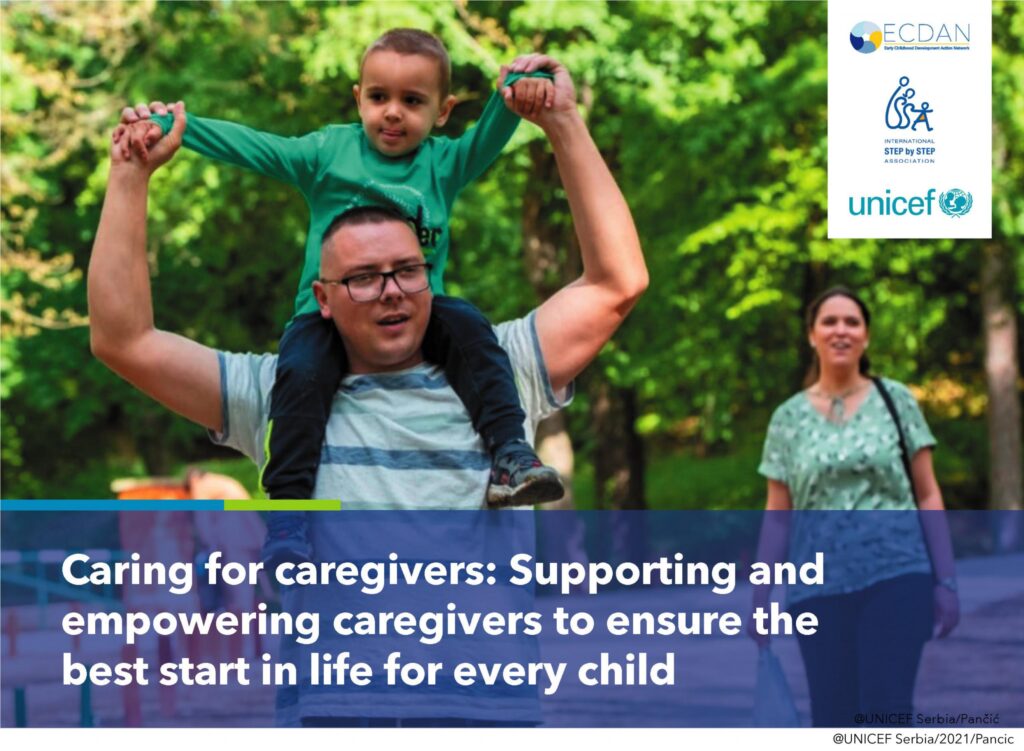In today’s fast-paced world, the role of caregivers has never been more critical, yet often goes unnoticed. Whether you’re caring for a parent with a chronic illness, a child with special needs, or a loved one recovering from surgery, the emotional and physical toll can be significant. The journey of caregiving is a profound act of love, but it can also lead to feelings of isolation, stress, and burnout. Therefore, empowering caregivers is essential—not just for their well-being but for the quality of care they can provide. A strong support network can transform the caregiving experience, offering a lifeline of resources, compassion, and practical assistance. In this article, we will explore the various ways caregivers can build and nurture their support systems, enabling them to thrive while they navigate this challenging yet rewarding path. Let’s dive into the power of connection and discover how to turn the struggle of caregiving into a shared experience filled with strength and resilience.
Understanding the Role of Caregivers in Todays Society
In today’s rapidly changing landscape, caregivers have become an indispensable part of society. They bridge the gap between various sectors of healthcare and community support, often working tirelessly behind the scenes to provide essential services. Caregivers are not just limited to the traditional roles of family members caring for elderly or disabled relatives; they encompass a broad spectrum of professionals and volunteers dedicated to enhancing the quality of life for those in need. Their responsibilities often include:
- Assisting with daily living activities
- Providing emotional support and companionship
- Facilitating medical appointments and managing medications
- Coordinating with healthcare providers
However, the demands of caregiving can be overwhelming, leading to burnout and emotional strain. It is crucial to acknowledge that caregivers also require support systems to thrive. Building a strong network can include:
- Community support groups
- Training programs for skill development
- Access to mental health resources
- Respite care options to recharge
By fostering a collaborative environment, we can elevate the role of caregivers to ensure they not only continue to provide compassionate care but also receive the respect and resources they deserve.
Identifying Key Resources for Caregiver Support
Support for caregivers is vital in ensuring they can provide the best possible care while managing their own well-being. Identifying key resources can make a significant difference in a caregiver’s journey. Here are some essential resources to consider:
- Local Support Groups: Connecting with like-minded individuals can provide emotional relief, guidance, and shared experiences.
- Online Forums: Websites like Caregiver Action Network offer forums where caregivers can seek advice and share stories.
- Professional Counseling Services: Mental health professionals can offer tailored strategies to cope with stress and emotional strain.
- Respite Care Services: Taking breaks is crucial; respite care allows caregivers time off while ensuring their loved ones are cared for.
- Educational Workshops: Many organizations provide training on caregiving, covering topics such as health management and communication skills.
To effectively utilize these resources, caregivers should develop a personalized support plan. This may include scheduling regular check-ins with support group members, participating in online discussions, and setting aside time for self-care. Below is a simple framework that can help in organizing these resources:
| Resource Type | Description | Frequency of Use |
|---|---|---|
| Support Group | In-person or online meetings for shared experiences and emotional support. | Weekly |
| Online Forum | A platform for discussions, advice, and community building. | Daily |
| Professional Counseling | Sessions with a therapist to manage stress and emotions. | Bi-weekly |
| Respite Care | Temporary alternative care giving for relief. | Monthly |
| Workshops | Educational sessions to enhance caregiving skills. | Quarterly |
Strategies for Cultivating Meaningful Connections
Building authentic relationships as a caregiver can be profoundly rewarding yet challenging. Identify common interests among peers, whether in caregiving itself or other aspects of life, to foster deeper conversations. Engage in group activities like workshops or support groups, allowing for shared experiences and insights to flow naturally. Additionally, use technology to stay connected; consider creating a private social media group or a messaging chat where caregivers can share tips, provide moral support, or simply check in on each other. Active communication can transform acquaintances into close allies.
Another effective way to strengthen bonds is through reciprocal support. Offer your assistance to others when possible, and remain open to receiving help in return. This creates a balanced dynamic, reinforcing trust and mutual appreciation. Organizing regular meetups or casual coffee chats can significantly enhance this support system. To facilitate these gatherings, consider a simple table layout outlining potential meet-up times:
| Day | Time | Location |
|---|---|---|
| Monday | 10 AM | Local Café |
| Wednesday | 2 PM | Community Center |
| Friday | 5 PM | Park |
By prioritizing active engagement and consistent interaction, caregivers can create a robust network that encourages personal and professional growth.
Advocating for Caregiver Rights and Well-Being
In the journey of caregiving, advocating for the rights and well-being of caregivers is essential. These individuals often face immense challenges, juggling responsibilities that can lead to physical and emotional exhaustion. Recognizing their contributions and supporting their needs is crucial for both the caregivers and those they serve. Key aspects include:
- Access to Resources: Caregivers should have access to resources that provide information on rights, benefits, and available support services.
- Mental Health Support: Encouraging mental health screenings and providing access to counseling can significantly improve caregivers’ overall well-being.
- Flexible Work Arrangements: Promoting policies that allow flexible schedules can help caregivers balance their duties with personal and professional lives.
Moreover, creating a culture that recognizes and celebrates the role of caregivers can foster a supportive community. This can be achieved through awareness campaigns and policy initiatives that promote the importance of caregiving. A collaborative effort from stakeholders can include:
| Stakeholder | Role in Advocacy |
|---|---|
| Government Agencies | Implement policies that support caregiver rights and access to services. |
| Healthcare Providers | Offer resources and referrals for caregiver support. |
| Non-Profits | Establish programs that cater to caregiver well-being and education. |
In Retrospect
As we conclude our exploration of empowering caregivers through the establishment of a strong support network, it’s clear that the journey of caregiving is fraught with challenges, but it can also be a source of profound connection and growth. By fostering a community of support, caregivers can not only enhance their own well-being but also improve the quality of care they provide to their loved ones.
Remember, building a robust network doesn’t happen overnight; it takes time, effort, and a willingness to reach out. Whether it’s connecting with fellow caregivers, seeking professional guidance, or leaning on friends and family, every step you take contributes to a greater sense of resilience and empowerment.
We encourage you to take action today—start a conversation with others in your community, join a support group, or explore online resources tailored for caregivers. Together, we can create a culture of support that acknowledges the hard work caregivers do and lifts them up in their time of need.
Thank you for reading, and we hope you leave this article feeling inspired to build your own support network and embrace the power of community in your caregiving journey. Remember, you are not alone in this; there are many resources and people out there ready to share the load. Stay strong, stay connected, and keep empowering yourself and others!






